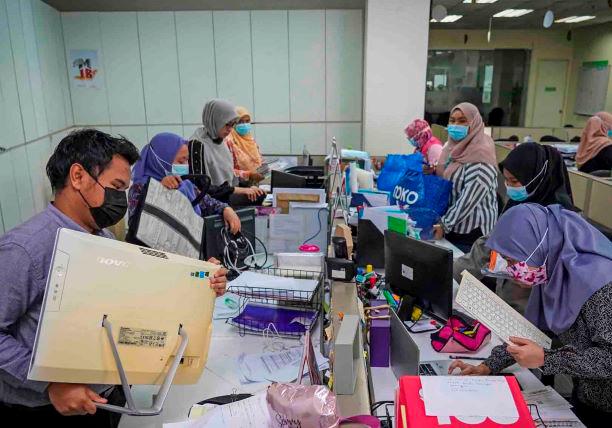PETALING JAYA: With the country entering the endemic phase of Covid-19, working from home (WFH) is no longer a necessity for Malaysian workers.
They have begun to return to their respective offices, as indicated by the congestion on Klang Valley roads.
Despite the heavy traffic, employees believe the decision to return to the office is timely to increase productivity, which had been severely affected during the remote working period.
Razer Fintech risk management senior executive Saidatul Nabilah said the endemic phase would be the best time for everyone to return to how things were before and revert to the pre-pandemic lifestyle.
The 29-year-old employee, who was excited to reunite with her colleagues after two years, said WFH has disadvantages that affect workers’ commitment owing to various distractions.
“I believe everyone knows WFH would someday come to an end and life would return to how it was. The traffic congestion in the Klang Valley existed even during the pandemic as people would still go out to run errands, buy food and send their children to school.
“Working in an office is more productive as you are more focused. It creates a certain discipline among working adults. While working from home, you are constantly disturbed by your children and other household issues.”
In the same vein, Shopee customer service executive Angela James said working from home was never easy for her as she had to look after her
six-month-old infant while liaising with customers via phone calls and emails.
She said the WFH culture has changed many of her habits, including her sleeping and eating routines, which resulted in some health issues.
“Of course, working from home gives flexibility but that’s when we start to procrastinate on our duties and that’s also when we sacrifice our sleep and meals to complete all the pending tasks.
“I used to skip my meals to finish all my pending cases and as a result, I’m still suffering from gastric (pain).
“When we work at the office, we are required to wake up at a certain time, have our meals and work within certain time frames. But when we work from home, we don’t practise a healthy lifestyle,” she added.
In contrast, Perfection Tuition Centre’s Biology tutor Pakiawathi Muniandy said she had a great time exploring new things in life such as Sanskrit, yoga and music since WFH was quite relaxing for her.
Pakiawathi, who resumed face-to-face classes last month, also agreed that face-to-face learning would be more effective in preparing students for examinations compared with e-learning as there is a high chance for students to get distracted during online classes.
“I’d say, WFH has given me plenty of time to gain more knowledge in many things. I started attending yoga, Sanskrit and music classes. But, now I’ve resumed face-to-face learning and what I can say is that students are paying more attention in class compared with online lessons.
“E-learning needs a laptop or at least a handphone to join the class but that’s where students installed all the social media applications like Facebook and Instagram.
“When we return to traditional learning, it is somehow good for the students because tutors will ask them to switch off their mobiles so that there won’t be any distraction in the learning process,“ she said.









